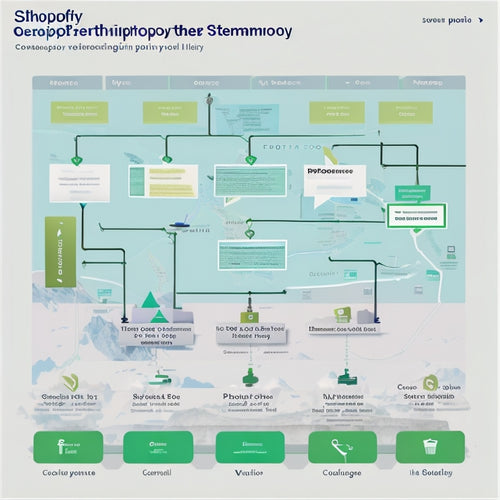
Economic Impact: High-Net-Worth Individuals Migration Insights
Share
High-net-worth individuals' (HNWIs) migration patterns have an impactful effect on the economic future of countries, influencing tax revenue, job creation, investment, and economic growth. The presence of HNWIs stimulates innovation, entrepreneurship, and job creation, while their investment decisions significantly impact the economic landscape. Retaining HNWIs requires effective strategies, including tax advantages, political stability, and a favorable business climate. Understanding HNWIs' migration trends is important for policymakers and business leaders to capitalize on opportunities and mitigate negative effects. As the dynamics of wealth migration continue to evolve, grasping the insights behind these trends becomes increasingly essential for shaping economic futures.
Key Takeaways
• HNWIs migration significantly impacts a country's economic future, affecting tax revenue, job creation, investment, and economic growth.
• Effective retention strategies, such as offering tax advantages and political stability, are crucial to prevent economic consequences and attract HNWIs.
• The migration patterns of HNWIs influence economic growth, job creation, and prosperity, with their investment decisions significantly impacting the economic landscape.
• The presence of HNWIs stimulates innovation, entrepreneurship, and job creation, contributing to the development of key sectors like real estate, finance, and technology.
• Understanding HNWIs migration patterns is pivotal for policymakers and business leaders to capitalize on opportunities and mitigate negative economic effects.
High-Net-Worth Individuals on the Move
The migration of high-net-worth individuals (HNWIs) has significant implications for the economic future of countries, as evidenced by the UK's anticipated loss of 9,500 millionaires, which is expected to have a substantial impact on its economy.
This phenomenon, known as wealth migration, can have far-reaching consequences for countries that experience a significant outflow of HNWIs. The economic implications are multifaceted, affecting not only tax revenue but also job creation, investment, and overall economic growth.
On the other hand, countries that attract HNWIs can benefit from their wealth, entrepreneurial spirit, and business acumen, leading to economic stimulation and development. Understanding the trends and patterns of HNWIs' migration is pivotal for policymakers and business leaders seeking to mitigate the negative effects and capitalize on the opportunities presented by this phenomenon.
Retaining Wealth and Talent
Countries seeking to reap the benefits of HNWIs' wealth and entrepreneurial spirit must implement effective retention strategies to prevent their outflow, as the departure of these individuals can have disastrous economic consequences.
To achieve this, governments can offer tax advantages, such as low tax rates or exemptions on certain investments, to attract and retain HNWIs. Additionally, ensuring political stability is essential, as HNWIs tend to favor jurisdictions with a stable and predictable business environment.
By providing a favorable business climate, countries can encourage HNWIs to invest, create jobs, and contribute to economic growth. Moreover, investing in innovation and providing access to quality education and healthcare can also help to retain HNWIs.
Millionaire Migration Projections
Millionaire migration patterns are increasingly vital to understand, as the loss of high-net-worth individuals can impact a country's economic future.
According to the Henley Private Wealth Migration Report 2024, wealthy relocation is expected to continue, with certain countries experiencing significant net inflows or outflows of millionaires.
Global millionaire trends indicate that the UAE is likely to attract the most millionaires in 2024, while China and the UK are expected to lose a large number of high-net-worth individuals.
These projections have significant implications for countries seeking to attract and retain wealthy individuals, as they bring with them investment, job creation, and economic growth.
Understanding these trends is essential for policymakers and business leaders looking to create an attractive environment for high-net-worth individuals.
Sales Insights and Industry Trends
In today's rapidly evolving sales landscape, data-driven insights are essential for businesses seeking to stay ahead of the curve and capitalize on emerging trends. To remain competitive, companies must adopt innovative sales strategies, leveraging AI-driven tools to optimize their approach.
However, it's important to acknowledge the potential AI biases that can negatively impact sales performance.
-
Mitigating AI biases: Businesses must prioritize fairness and transparency in their AI-driven sales strategies to avoid perpetuating harmful stereotypes.
-
Personalization is key: Tailoring sales approaches to individual clients' needs and preferences is critical for building trust and driving conversions.
-
Continuous training and adaptation: Sales teams must stay attuned to shifting market dynamics and adapt their strategies accordingly to stay ahead of the competition.
Understanding the HNWIs Effect
High-net-worth individuals (HNWIs) exert a profound impact on the economic landscape, as their migration patterns and investment decisions can greatly influence a country's economic growth, job creation, and overall prosperity.
By understanding the HNWIs' effect, policymakers can develop strategies to attract and retain these individuals, thereby fostering economic growth and wealth retention.
The presence of HNWIs can stimulate innovation, entrepreneurship, and job creation, leading to a significant boost in economic activity. Additionally, their investments can contribute to the development of key sectors, such as real estate, finance, and technology.
To capitalize on the benefits of HNWIs, governments must create a conducive environment that supports their wealth retention and encourages them to invest in the local economy.
Frequently Asked Questions
How Do HNWIS Impact Local Real Estate Markets in Their Destinations?
"A tidal wave of luxury spending crashes into local real estate markets as HNWIs arrive, driving real estate fluctuations and reshaping wealth distribution, as they inject capital into prime properties, gentrifying neighborhoods and stimulating local economies."
Can HNWIS Relocate With Their Entire Family and Staff?
When moving, HNWIs often prioritize family dynamics, ensuring suitable staff accommodations, education options, and cultural integration for their dependents, thereby facilitating a smooth shift and maintaining their high standard of living.
What Philanthropic Opportunities Attract HNWIS to Specific Countries?
"As the world becomes a canvas for philanthropic masterpieces, HNWIs are drawn to countries offering a symphony of opportunities, including educational initiatives, cultural partnerships, environmental conservation, and humanitarian aid, aligning their values with meaningful impact."
Do HNWIS Prefer Urban or Rural Areas for Their New Residences?
High-net-worth individuals often prioritize lifestyle preferences and luxury amenities, favoring urban areas with access to high-end services and connectivity. However, privacy concerns and security features may lead some to opt for secluded rural residences offering enhanced protection and anonymity.
How Do HNWIS Typically Handle Healthcare and Medical Needs Abroad?
High-net-worth individuals typically navigate healthcare abroad through medical tourism, leveraging elite private healthcare services, and often retaining international health insurance coverage, ensuring seamless access to quality care while mitigating potential risks.
Related Posts
-

How Does Shopify Generate a Sitemap
This article examines the process of sitemap generation on the Shopify platform. It explores the benefits of Shopify...
-

Enhancing Sales: Cross-Promoting Products on Shopify
Cross-promoting products on Shopify has emerged as a powerful approach to bolster sales and improve the overall cust...
-

Shopify: The Ultimate E-commerce Solution
Shopify is a highly regarded subscription-based software designed for setting up and managing online stores, as well...


